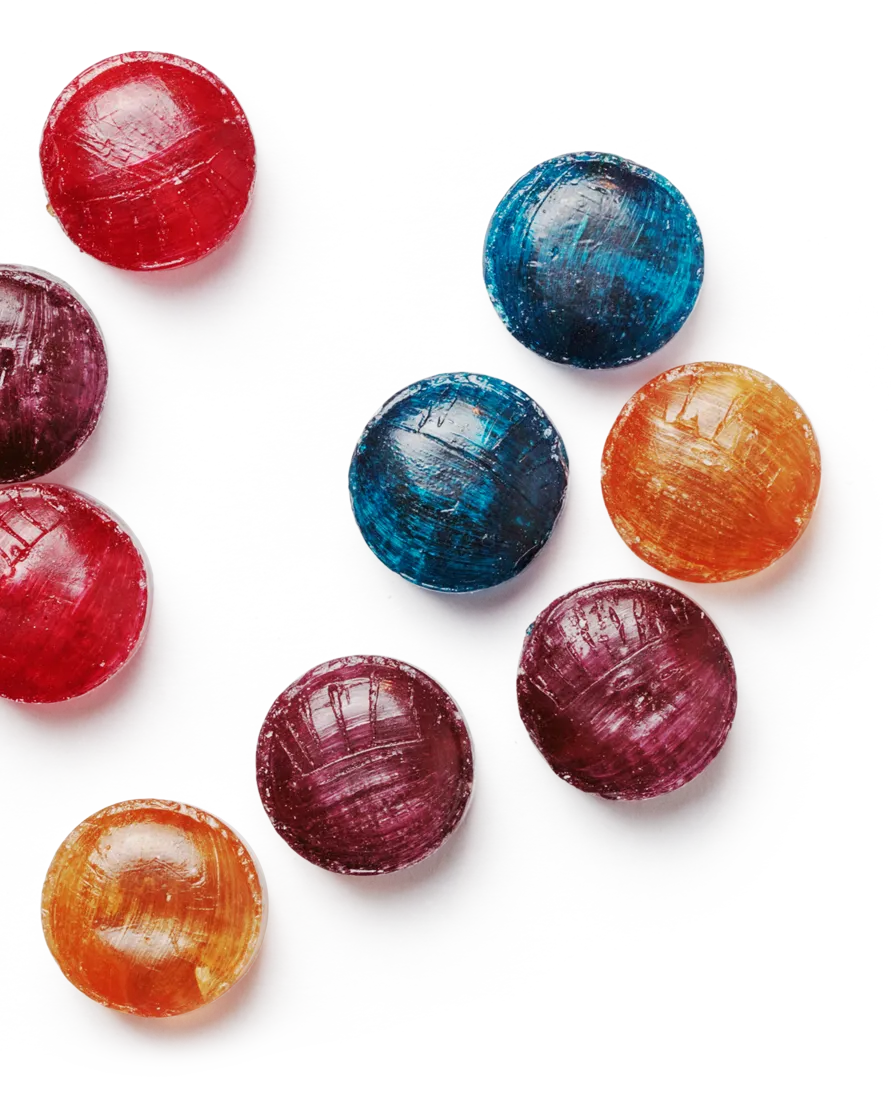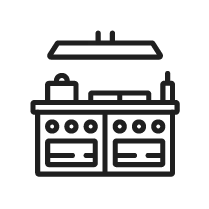

Colorado Cottage Food Law

Where can you sell?
In Colorado, you can sell cottage foods at fairs, festivals, farmers markets, home, online, and roadside stands.

What kinds of food can you sell?
Colorado allows the sale of bread, candies, condiments, dry goods, fermented foods, pastries, preserves, snacks, and whole eggs.

What should be on my product labels?
Labels must include business address, business name, date produced, ingredients, phone number, product name, and a note that your product was made in an uninspected kitchen.

Is there an income cap?
There is a sales limit of $10,000 per year per product in Colorado.

Are there any special requirements?
In Colorado, you must take a food handler training course. You may make your products in a commercial kitchen or home kitchen.

Where can I find more information?
Contact the Colorado Department of Public Health & Environment at 303-692-3645 or cdphe_mfgfd@state.co.us. Learn more about Colorado's cottage food laws here.
✉️ Subscribe to get food business growth tips, business inspiration, and event invites.
*Cottage food laws change regularly — always double check the requirements for running a home-based food business with a legal expert or your local health department.
Colorado Cottage Food Law
If you enjoy baking, you may be considering selling home-baked foods as a way to make a little extra income. Your friends may even be telling you that your products are good enough to sell to the public. However, you might stop short thinking about what you need to set up your home food business. For example, do you know what you can sell and what you can't sell without getting a full food and beverage license?
The Colorado cottage food law, which was enacted in 2012, provides a way for small home food producers to sell their products without a lot of red tape and extra expense. Selling homemade food online and at farmers markets is a great way to add to your family's income.
To make sure that you know how to sell food from home legally in Colorado, we've put together a brief Colorado cottage food act fact sheet.
Colorado Cottage Food Class
One of the provisions of the Colorado cottage food law requires that anyone selling homemade food items "must take a food safety course that includes basic food handling training and is comparable to, or is a course given by, the Colorado State University extension service or a state, county, or district public health agency, and must maintain a status of good standing in accordance with the course requirements, including attending any additional classes if necessary."
This Colorado food class covers what types of foods are covered by the cottage food law, cottage food law labels, home bakery taxes, commercial kitchen requirements in Colorado and other laws about selling homemade food. They even give you a Colorado cottage food label template to use.
The CSU Extension cottage food safety training class is offered online 11 times a year. You must register at least four days prior to the class and the fee is currently $40 per person. Those who complete the class and pass the accompanying exam receive a three-year food safety certificate. For a current schedule of classes, visit the Colorado State University extension office website.
Home food producers in Colorado are permitted to sell baked goods that don't need to be refrigerated, up to 250 dozen eggs a year, spices, dehydrated products, teas, honey, jams and jellies, butter, pickles, nuts and seeds, and fruit empanadas, according to the 2019 Colorado food code and later amendments. All homemade foods need to have cottage food labels in Colorado that list the main ingredients in the product and state plainly that the product is home-produced.
Cottage food producers may sell eligible food products with a food safety certificate and without using a commercial kitchen. Other types of foods DO need to be prepared in a commercial kitchen, and you must have a county health department license and regular inspections for these foods.
The law limits cottage food producers to $10,000 in net sales for each product. Since you are selling food items, you are not required to charge state sales tax, according to the 2019 Colorado food code. However, local sales taxes may apply.
Home Bakery License Colorado
If you intend to do more with your food business than is covered by the Colorado cottage food law, such as sell to restaurants or groceries, or produce more than $10,000 of product, then you need a commercial food and beverage license from your county's health department.
Below is an overview of other types of food business licensing in Colorado. (Keep in mind that for a cottage food business, all you need is a food safety certificate that you get by taking the online class and passing the exam. There is no cottage food license or permit to sell food from home in Colorado.)
Food truck license Colorado: For a food truck business in Colorado, you need to obtain a business license, a retail food establishment license, a sales tax license (for each city where you operate), and a mobile food license or zoning permit, depending on the city. Colorado food truck regulations are set by the individual city, so you may need to obtain several mobile food licenses if you plan to travel with your truck. These licenses cost between $250 and $600, depending on the city, and are valid for one year.
Retail food license Colorado: For a fixed food business in Denver or a business that sells goods not on the cottage food list, you need to obtain a retail food license in Colorado. To do this, you need to apply to the Colorado Department of Public Health and Environment. You also need to get a Colorado state tax license from the Colorado Department of Revenue as well as a business license. The Department of Public Health and Environment will review your business plans and menu (at a cost not to exceed $580) and give approval (or not) for you to proceed with your license application. The retail food license fee ranges from $365 to $485, depending on the seating capacity of your eatery, and is valid for the calendar year. You can view the retail food establishment license application online.
Wholesale food license Colorado: A wholesale food license in Colorado allows you to sell your products to resellers, such as bakeries, coffee shops and grocery stores. In addition to registering with the Colorado Department of Public Health and Environment and obtaining a wholesale license for $150, you'll need a business license. Additional licensing is required if you also sell your food products to the public.
Home bakery license Colorado: A home bakery is just another way of saying a cottage food business. As we outlined above, if you make foods from the approved list, sell them directly to consumers and don't earn more than $10,000 net per product per year, you don't need a license. If you make other products, sell them to re-sellers like grocery stores and/or exceed the $10,000 per product limit, then you need to obtain either a retail or a wholesale food license (or both).
Cottage Food Laws By State
Colorado isn't the only US state to have cottage food laws. Every state except for New Jersey, plus the District of Columbia, has some type of cottage food law. Below is just a sample of what some other states are doing and how their laws compare to the Colorado cottage food law.
Ohio cottage food laws are similar to those in Colorado. However, Ohio doesn't include eggs in its list of approved products, but does include dry coffee, dry cereal and popcorn. As in Colorado, cottage food producers do not need a license. Like Colorado, there are no Ohio cottage food taxes. Producers do need to charge sales tax on any delivery fee, however.
The cottage food law in NY is unique in that it allows candy as a cottage food, but not products made with chocolate. In addition, some dry items sold as cottage food in New York State must use commercially-processed ingredients, like spices, soup mixes, and nut mixes. New York State does not include pickles or eggs in its list of approved foods for the cottage food law. Unlike Colorado, New York doesn't have a limit to how much a producer may sell under this law. There is no license required in New York for cottage food producers. However, such producers do need to register with the New York State Department of Agriculture. (It's free to register.)
In Texas, home food producers are also required to take a food safety class. They also must obtain a Texas Food Handler's Certificate for $10. Approved foods are similar to those in Colorado, with the exception that Texas also includes vinegar and mustards, but not eggs. Cottage foods in Texas must be labeled following the law's guidelines. There is no sales tax on baked goods in Texas.
Florida's cottage food laws allow individuals to sell up to $50,000 in approved products each year using a home kitchen without having to get a food permit from the health department. The list of approved foods in Florida is somewhat narrower than the Colorado list, and includes non-hazardous baked goods, dry pasta, nuts, popcorn, candies, honey, jams, fruit pies, herbs, cereals and vinegars.
California's cottage food laws are similar to the other states we've discussed. Under the California law, which went into effect in 2013, cottage food producers must register with the California Department of Public Health--Food and Beverage Branch and complete a food safety training course within three months of registering. California's list of approved products includes vanilla extract; icings that don't contain eggs, cream or cream cheese; protein powder shake mixes and mustards. All cottage foods produced in California must be labeled. You can view a cottage food label template for California on the state's department of public health website.
To learn more about how to sell home-made goods from your home and online, and how our food business software can help you track your sales and be profitable, visit www.castiron.me.
Build a websitefor your food business
Castiron makes it easy to start selling your homemade food online. No coding or design skills required.
Start 14-day free trialNo Credit Card Required
